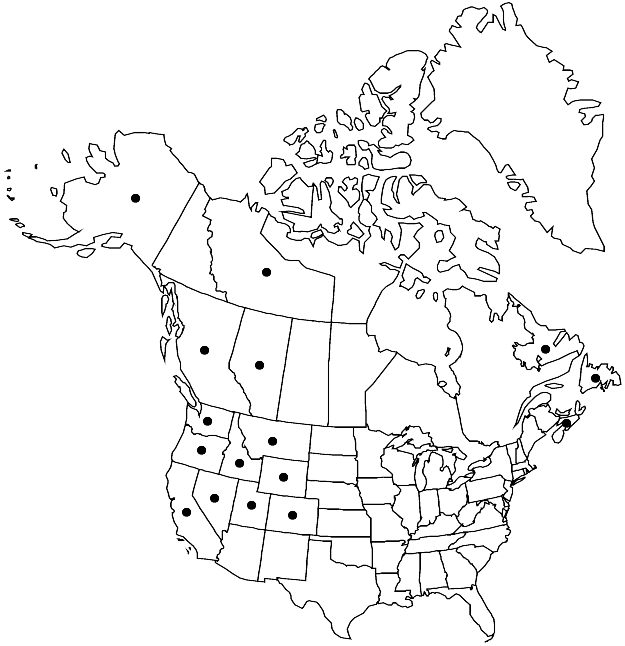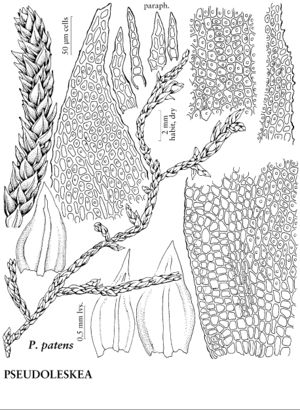Pseudoleskea patens
Canad. Rec. Sci. 6: 20. 1894.
Plants small to medium-sized, in thin mats, dark green, olive green, black-green, or rarely yellow-green. Stems with branches slender to robust, julaceous, apices sometimes curving up; central strand present; paraphyllia many, filamentous to foliose, not branched. Leaves appressed to julaceous when dry, erect-spreading to patent when moist, dull, ovate, asymmetric, not or rarely falcate, (0.6–) 0.7–1 mm; margins recurved proximally; apex abruptly acute to rarely short-acuminate, hairpoint absent; costa not reaching acumen, green to orange-green, somewhat sinuate, terminal abaxial cells not or weakly projecting, not abaxially strongly dentate; alar cells quadrate to transversely elongate, region large; medial laminal cells quadrate, to 18 µm, 1 (–2):1, opaque, moderately to strongly low rounded papillose over lumen or papillae sometimes off-centered, walls incrassate, not pitted; proximal juxtacostal cells usually shorter than medial, walls pitted or not. Capsule inclined, asymmetric, 0.5–2 mm; endostome basal membrane 1/3–1/2 exostome length, segments shorter than exostome, cilia well developed. Spores 10–14 µm.
Phenology: Capsules mature summer (Jul–Aug).
Habitat: Shaded to exposed rock and outcrops, mineral soil, near streams
Elevation: moderate to high elevations (900-3500 m)
Distribution

Alta., B.C., Nfld. and Labr., N.W.T., N.S., Alaska, Calif., Colo., Idaho, Mont., Nev., Oreg., Utah, Wash., Wyo., Eurasia
Discussion
Pseudoleskea patens is relatively small and usually dull, dark, or olive green, with short laminal cells with rounded centrally located papillae; it differs from P. tribulosa by the recurved margins, weaker and lower laminal cell papillae lacking projecting apical salient, larger leaves with stronger plicae, and lack of the Morningstar-shaped projections of the abaxial apex cells of the costa.
Selected References
None.
Lower Taxa
"subpercurrent" is not a number."shorter" is not a number."broad" is not a number.
